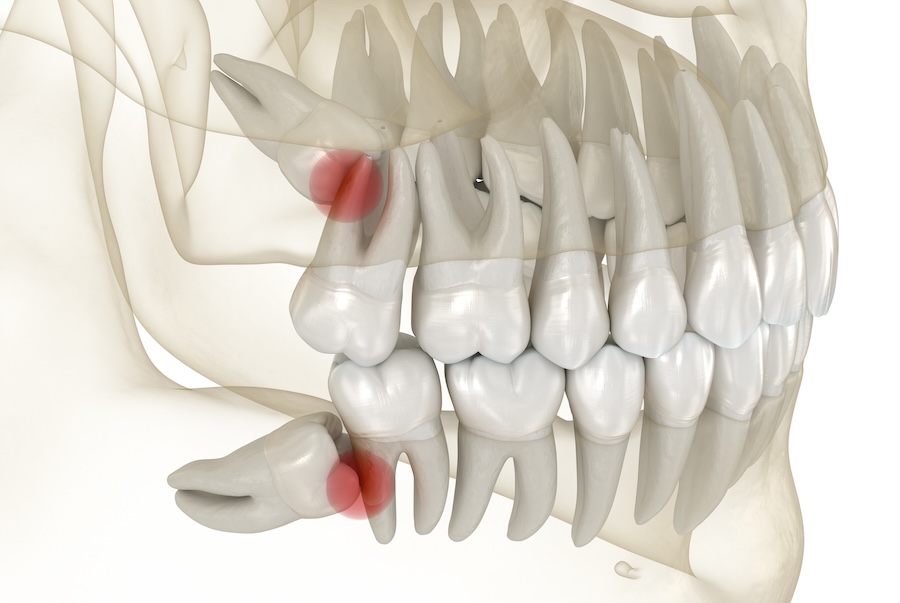
Wisdom teeth have a funny way of showing up late to the party—usually between ages 17 and 25, long after the rest of your smile has settled in. For some, they slide in with no fuss at all. For others, there just isn’t enough room. When that happens, these teeth can become impacted, meaning they’re stuck beneath the gums or pushing at awkward angles against neighboring molars.
At Queensboro Plaza Dental Care in Long Island City, Dr. Michael Nguyen and Dr. Daniel Barayev often see patients who’ve been “waiting it out,” hoping those teeth will behave. But when impacted wisdom teeth are left untreated, they can quietly cause a surprising amount of trouble over time.
Lingering Pain or Pressure
That dull ache in the back of your jaw? It’s not something to brush off. Impacted wisdom teeth can press on the nerves and bone, creating pressure that comes and goes—or sticks around for good. You might notice soreness when you chew, open wide, or even just wake up in the morning. The discomfort often starts small but tends to get worse rather than better.
Infection Around the Gums
When a wisdom tooth only partially breaks through the gum, it creates a perfect hiding spot for food and bacteria. That flap of tissue can trap debris, leading to painful swelling and infection known as pericoronitis. You might notice bad breath, a bad taste, or tender gums near the back of your mouth.
Even with great brushing, this area is tough to keep clean—so once infection sets in, it can become a repeating pattern. Removing the impacted tooth often gives lasting relief.
Crowding and Shifting Teeth
If your smile once looked perfectly straight, impacted wisdom teeth can quietly undo some of that progress. When they push forward, they can cause neighboring teeth to shift or crowd together. Even mild movement can affect your bite or the way your teeth fit when you close your mouth.
If you’ve ever had orthodontic treatment, wisdom teeth can compromise those results—making early monitoring and timely removal worth it in the long run.
Cysts or Bone Damage
Though rare, untreated wisdom teeth can also form cysts—fluid-filled sacs that can slowly damage surrounding bone or roots. Over time, this can weaken the jaw or require more complex surgery to correct. The longer impacted teeth stay in place, the higher the risk of these hidden problems developing quietly beneath the surface.
When to See Your Dentist
Not every wisdom tooth needs to come out, but impacted ones usually won’t improve on their own. At Queensboro Plaza Dental Care, Dr. Nguyen and Dr. Barayev use advanced imaging to check your wisdom teeth’s position and see whether they’re likely to cause future issues. Catching problems early often means an easier, quicker recovery and fewer complications later.
Impacted Wisdom Tooth Removal in Long Island City, NY
If you’ve noticed soreness, swelling, or just have questions about your wisdom teeth, schedule a visit with our team at Queensboro Plaza Dental Care. We’ll take a close look, explain your options clearly, and make sure you understand every step before moving forward.
A little preventive care now can save you from a lot of discomfort down the road—and keep your smile (and your jaw) healthy for years to come.
Contact Us